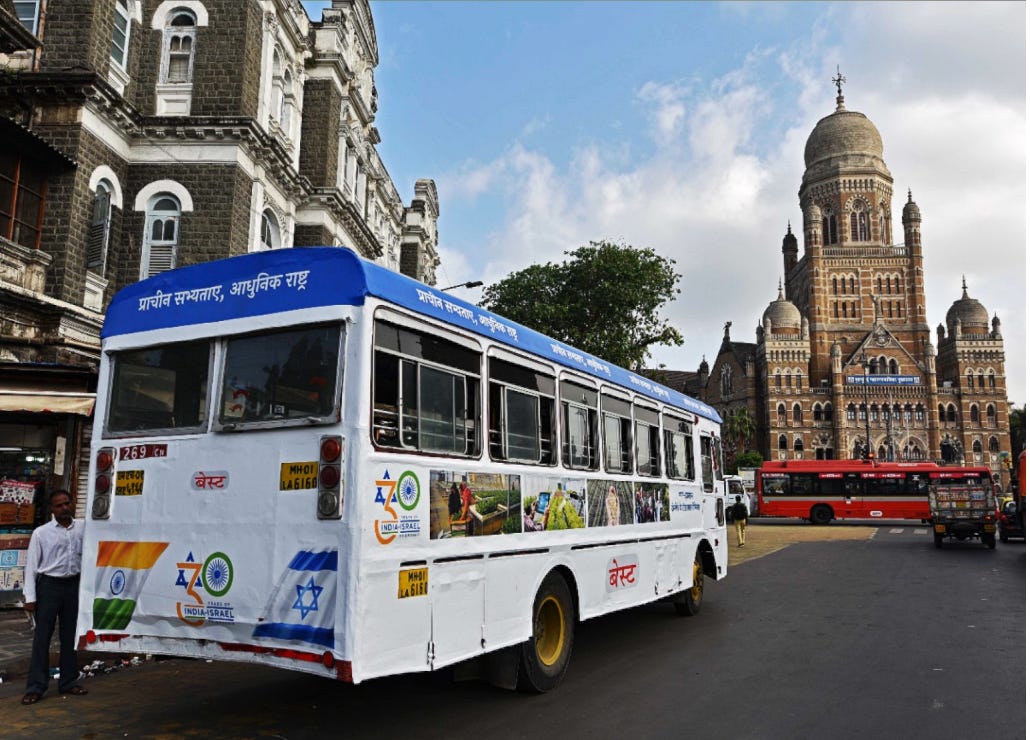Hello everyone,
This week, Israel celebrated its so-called Independence day (an event Palestinians refer to as Al-Nakba, or the Catastrophe).
Given this year also marks 30 years of India-Israel diplomatic relations, both countries pulled out all the stops to underscore how close they have grown over the past decade.
Here is Modi delivering a special messag…
Keep reading with a 7-day free trial
Subscribe to Hostile Homelands: a newsletter about India and Israel to keep reading this post and get 7 days of free access to the full post archives.



